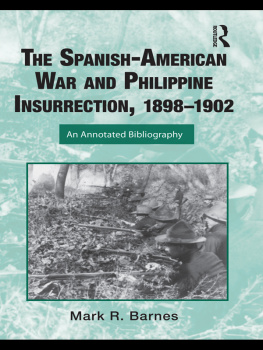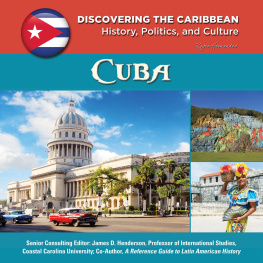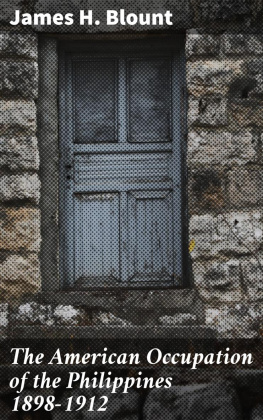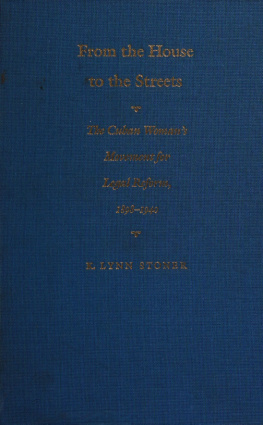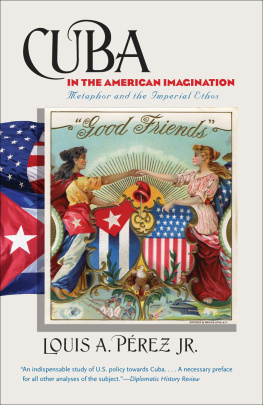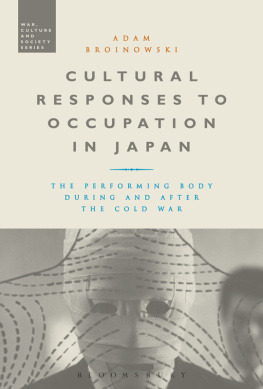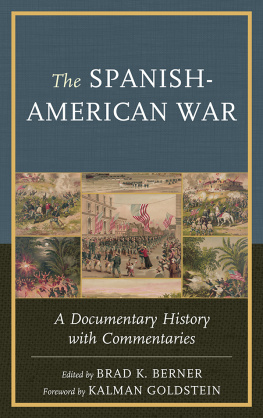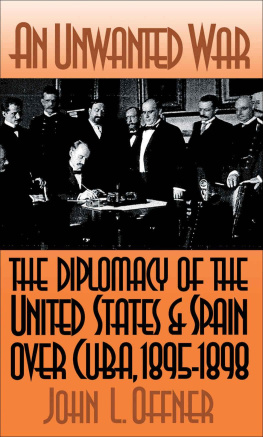Translation of the books in the series Latin America in Translation / en Traduccin / em Traduo, a collaboration between the Consortium in Latin American Studies at the University of North Carolina at Chapel Hill and Duke University and the university presses of the University of North Carolina and Duke, is supported by a grant from the Andrew W. Mellon Foundation.
2011 The University of North Carolina Press
All rights reserved
Set in Minion Pro
Manufactured in the United States of America
Originally published in Spanish by Ediciones Unin in Havana, Cuba, as Las metforas del cambio en la vida cotidiana: Cuba, 18981902, 2003 Marial Iglesias Utset and Ediciones Unin.
The paper in this book meets the guidelines for permanence and durability of the Committee on Production Guidelines for Book Longevity of the Council on Library Resources.
The University of North Carolina Press has been a member of the Green Press Initiative since 2003.
Library of Congress Cataloging-in-Publication Data
Iglesias Utset, Marial, 1961
[Metforas del cambio en la vida cotidiana. English]
A cultural history of Cuba during the U.S. occupation, 1898-1902 / Marial Iglesias Utset; translated by Russ Davidson.
p. cm.
(Latin America in translation / en traduccin / em traduo)
Includes bibliographical references and index.
ISBN 978-0-8078-3398-8 (cloth : alk. paper)
ISBN 978-0-8078-7192-8 (pbk : alk. paper)
1. National characteristics, Cuban. 2. CubaHistory1899-1906. 3. CubaCivilizationAmerican influences. I. Title.
F1787.15613 2011
972.9106'1dc22 2010045626
cloth 15 14 13 12 11 5 4 3 2 1
paper 15 14 13 12 11 5 4 3 2 1
TRANSLATOR'S NOTE
Among other things, this book is about how the language of one countrythrough trade and direct investment, tourism, the inflow of people and cultural artifacts, and outright military occupation and neocolonial practiceinvades and takes root in the language of another. Thus in different sections of the text, as part of her description and analysis of the U.S. presence in Cuba, Marial Iglesias Utset cites and discusses the abrupt appearance and use of English-language words, expressions, and figures of speech imported and adopted from the United States. To emphasis how incongruous or jarring these were (at least initially) within the Cuban milieu, she italicizes them. To preserve the effect but also avoid the confusion this practice might cause in the translated text, I have instead put quotation marks around such words and expressions. Elsewhere, on first use in each chapter, Spanish words with no common English equivalents appear in italics. My treatment of the Spanish word patria likewise calls for clarification. Since no single term in English adequately conveys its different shades of meaning, I have translated it variously as country, motherland, fatherland, homeland, and nation, depending on what best suits the context.
The text and notes also contain several poems. I hope that in freely translating these, I have managed (where called for) to convey their mocking irreverence and playful tone. I have also tried to maintain the stanza form but not the metrical line or rhyming scheme of the originals, since that, in essence, would require that one be a poet himselfsomething I clearly am not.
ACKNOWLEDGMENTS
A great many people, some of whom came to my aid with their time, books, knowledge, and experience, and others simply with their unconditional caring and devotion, have been key to the completion of this book.
In the first instance, I would like to thank my scholarly adviser, Mara del Carmen Barcia, for her intellectual generosity and her many valuable suggestions. I am also grateful to Oscar Zanetti, Oscar Loyola, Berta lvarez, and Olga Portuondo, each of whom read and offered insightful observations on the initial results of my research.
The critical comments made by Jorge Ibarra, Alejandro Garca, and Gloria Garca helped me to clarify and sharpen the central themes and topics of this book. Moreover, it was through reading Jorge Ibarra's book that I became particularly interested in studying the interweaving of nationalism and popular culture.
A great many of the ideas which I expound in this work grew out of the exchanges that took placeover a period of yearsamong the members of a workshop of young historians. The group was organized and overseen by Professor Carmen Almodvar of the University of Havana, and I am deeply grateful for her enthusiasm and belief in the future and for the confidence that she placed in me. Likewise, Imilcy Balboa, Manuel Barcia, Joel Cordov, Mercedes Garca, Latvia Gaspe, Blancamar Len, Adrin Lpez, Rolando Misa, andin particularYolanda Daz, Leida Fernndez, Reinaldo Funes, Julio Gonzlez, Oilda Hevia, Ricardo Quiza, and Pablo Riaofriends, colleagues, and fellow workshop memberslistened with the utmost patience as I addressed the same themes time and time again, offering me not only their intelligent comments, bibliographic suggestions, and references to archival source material, but also the warmth and reassurance of their friendship.
Francisco Prez Guzmn and Enrique Lpez generously shared with me information and ideas accumulated during many years of historical research. I am grateful for their regard and collaboration, as I am for that of Orlando Garca, director of the Archivo Histrico Provincial of Cienfuegos, and Fernando Martnez.
I also owe a considerable intellectual debt to a group of historians in the U.S. academic community whose work I have closely followed in recent years. In large measure, it was the publications of Louis A. Prez Jr. which led me to concentrate on the complex and fascinating period that I have chosen. His personal efforts and the financial assistance granted me by the American Council of Learned Societies/Social Science Research Council afforded me the opportunity to examine a part of the extensive documentary resources on Cuba held in both the U.S. National Archives and the collections of the Library of Congress. I have learned a great deal from the work done by Rebecca J. Scott, work that is meticulous, painstaking, and yet highly imaginative; I am grateful to her and to Michael Zeuske, professor and research historian at the University of Cologne, Germany, for the support they have given me as well as for the fruitful intellectual exchanges which they arranged, among a transnational community of researchers, during the course of meetings and workshops held in Cienfuegos, Havana, Santiago de Cuba, and Cologne.
I owe a special debt of gratitude to Franklin D. Knight, who took time out of a packed schedule to translate an abbreviated version of my work into English. The research conducted by Aline Helg and Ada Ferrer helped shape the approaches I have taken in this study toward the subjects of race and nationalism, and I thank Ada Ferrer, as well as David Sartorius, Jos Amador, Reinaldo Romn, Alejandra Bronfman, and Marikay McCabe not only for sharing texts and ideas but for the concern and affection they have shown me throughout this project, a bond strong enough to overcome any tendency on my part to become isolated or blocked in my work.
It was my reading a little more than seven years ago of the writings of Arcadio Daz Quiones on Puerto Rico and Cuba which prompted me to take up the study of the complexities underlying the transition to postcolonial society and to reflect on the symbolic dimension of the changes which occurred as a result of this process. The present work is the direct descendant of that early interest and inquiry. At the same time, the work of Daz Quiones's colleague, distinguished Puerto Rican sociologist ngel G. (Chuco) Quintero, opened my eyes to the rich and multifaceted world of popular culture.


